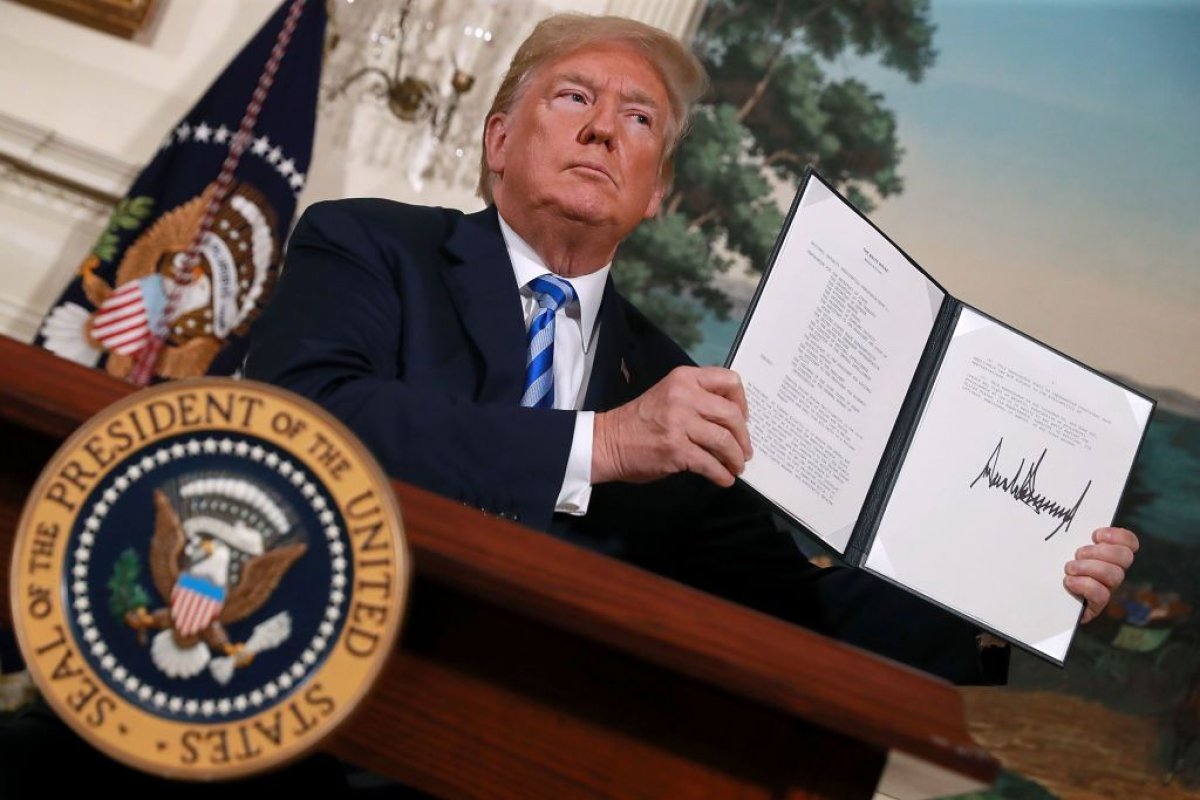Iran has officially filed a lawsuit to sue the U.S. over President Donald Trump's decision to remove the country from the 2015 Nuclear Deal.
The International Court of Justice (ICJ) confirmed that the suit has been filed, Radio Free Europe reported. Iranian state media and the country's foreign minister first reported the news on Monday, saying Trump's decision violated the treaty the Islamic Republic signed with the U.S. and five other nations.
Iran aims to hold the U.S. "accountable for its unlawful re-imposition of unilateral sanctions. Iran is committed to the rule of law in the face of US contempt for diplomacy and legal obligations," Foreign Minister Javad Zarif wrote on Twitter.
Today Iran filed a complaint @CIJ_ICJ to hold US accountable for its unlawful re-imposition of unilateral sanctions. Iran is committed to the rule of law in the face of US contempt for diplomacy & legal obligations. It's imperative to counter its habit of violating int'l law.
— Javad Zarif (@JZarif) July 16, 2018
According to Iran's Mehr News Agency, the lawsuit has been filed citing the 1955 Treaty of Amity.
"After receiving the viewpoints of Iranian and foreign international attorneys and legal advisors, the final lawsuit containing the Islamic Republic of Iran's complaint over the [US'] violation of the Treaty of Amity was registered on July 16, 2018," a spokesperson for the foreign ministry said, according to the news agency.
The U.S. decision to "re-impose nuclear sanctions runs counter to the United States' international obligations," the spokesperson said. The ministry also argued that the U.S. is legally "obliged to stop these international breaches and compensate for all the damage inflicted."
In May, Trump said the U.S. would step away from the 2015 Iran Nuclear Deal, formally known as the Joint Comprehensive Plan of Action (JCPOA). Following Trump's decision, Secretary of State Mike Pompeo promised to implement the "strongest sanctions in history" against Tehran.
However, Germany, France, the United Kingdom, Russia and China, the other signatories of the treaty, have all criticized Washington's decision, scrambling to salvage the agreement. The deal allows Iran to sell its oil on world markets and for foreign companies to begin investment in the country.
Earlier this month, Iran's OPEC Governor Hossein Kazempour Ardebili accused Trump of raising global oil prices through his stance against Iran.
"Your tweets have increased the prices by at least $10. Please stop this method," Ardebili said. The oil boss also accused the president of stoking tensions in the Middle East, specifically by pitting Iran against Saudi Arabia.

Oil industry and financial experts have also pointed fingers at Trump for driving up global prices.
"It does not occur to the U.S. president that it is Trump himself who is driving prices up through his Iran policy," German bank Commerzbank wrote in a statement, according to Oil Price. The bank said that U.S. efforts to block Iran from exporting oil would make it difficult for OPEC to meet supply demands, forcing prices to rise.
Trump has said that he expects Iran will feel the burn of sanctions and call him to say, "'Let's make a deal,' and 'We'll make a deal.'" However, an Iranian Foreign Ministry spokesperson said Monday that Trump will have to "initiate" any call himself. Previously, Iran said it would only negotiate with the other signatories of the agreement moving forward.
Uncommon Knowledge
Newsweek is committed to challenging conventional wisdom and finding connections in the search for common ground.
Newsweek is committed to challenging conventional wisdom and finding connections in the search for common ground.
About the writer
Jason Lemon is a Weekend Editor at Newsweek based in Brooklyn, New York. Prior to taking on the editor role, Jason's reporting focused on ... Read more
To read how Newsweek uses AI as a newsroom tool, Click here.








